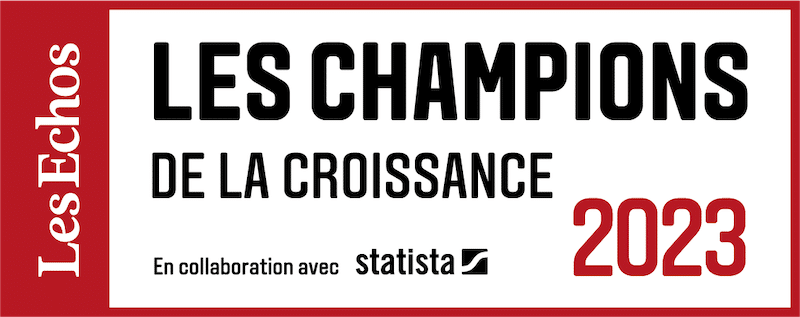How does a Scrum Master differ from a project manager?
10/06/2020
5min
Tables des matières
Is a Scrum Master simply a Project Manager with an agile approach? This widespread view is far from reality. As a coach in the Agile era, Scrum Masters give rise to many fantasies and, above all, misinterpretations. Far from being reduced to a 2.0 project manager, he has a precise role in the eponymous methodology. If you ask him to fill in a schedule, deliver a budget estimate or answer customers' questions on technical points, you haven't yet understood his real role. To get the most out of agility and this role, get to know him. Meet an atypical profile, essential to the success of your project.
First step: understand the Scrum method
The term "method" is not entirely appropriate. Because more than a method, Scrum is a state of mind that is meant to be radical: rather than thinking "project" (like the V-cycle), think "product". Therefore, forget about specifications, cascading validations and delivery at N+3. From now on, new IT and software projects are developed step by step. In the Scrum language, we speak of iterations. Thanks to a "sprint" operation (cycle during which one or more functionalities are selected, developed and validated), the development is built as it goes along, always in accordance with the users and the customer. Usable from the very first sprints, the product evolves thanks to the exchanges between the three stakeholders (Scrum team/users/customer).
Self-managed and multi-disciplinary, the team comprises a Product Owner, a group of developers (Development Team) and a Scrum Master. The Product Owner defines a product that delivers maximum business value to users, and the Development Team shapes this product. The Scrum Master is defined as a leader-servant of the Scrum methodology. See our guide to a successful Scrum.
The role of the Scrum Master
The Scrum Master is responsible for the proper understanding and implementation of Scrum. He creates an ad hoc environment to allow the team to focus on its work, ensures external relations and smoothes changes. In particular, he is responsible for ensuring that all the agile rituals that sequence the life of the project are carried out correctly.
The Scrum Master facilitates. During a sprint, there are many milestones: Sprint Planning, Daily Sprint, Sprint Review, Retrospective... Since the method relies on the dynamism and speed of execution of the teams, he makes sure that each milestone is carried out correctly and promptly. He also has the mission to limit the obstacles that the team may encounter so that it progresses as well as possible.
The Scrum Master responds to the goal. If the Product Owner describes the goal at the beginning of the sprint, the Scrum Master ensures that it is achieved by keeping the teams focused and communicating regularly with the outside world.
The Scrum Master trains. He helps the junior Product Owner or the team of developers to become more competent, particularly in the Agile method. He integrates new members and raises awareness among stakeholders.
The Scrum Master steps aside. His individual objective is to accompany the team in an independent way. Independence from stakeholders (company, customer, sponsors...), but also from himself.
A Scrum Master is not a project manager
The Scrum Master is not the new name of the project manager in the Agile style, but a unique role. The basic difference is that the project manager participates in the creation of the project, while the Scrum Master ensures that the project he did not create is properly managed.
The result. Unlike the technical project manager, he is not the guarantor of the technical or functional quality of the product. He supports the technical managers, i.e. the Development Team, but does not bear the responsibility for the success or failure of the project.
Communication. When he speaks to the ecosystem, it is to educate about the methodology or to solve problems that get in the way of the Scrum team. He does not discuss the technical aspects of the project, which are reserved for the development team.
Planning. When the project manager organizes and manages the schedule, the Scrum Master does not intervene in the project planning. Each sprint is guided by the Product Owner and the Development Team prioritizes its tasks during the development cycle.
The Scrum Master ensures that the team delivers a product of the best possible quality, he responds to a logic of continuous improvement and not of results.
As a coach, trainer, facilitator and pilot, the SCRUM Master is essential to the smooth functioning of your development team. By managing the substantive issues, he allows the team to focus on the iterations and deliver a functional, timely and high value-added product. When you develop a product in Agile, don't do without a Scrum Master. Without one, it is impossible to enjoy the benefits of agile development.
If you are unsure about Scrum or Kanban, we have an article on the subject.
How does a Scrum Master differ from a project manager?
10/06/2020
5min
Tables des matières
Is a Scrum Master simply a Project Manager with an agile approach? This widespread view is far from reality. As a coach in the Agile era, Scrum Masters give rise to many fantasies and, above all, misinterpretations. Far from being reduced to a 2.0 project manager, he has a precise role in the eponymous methodology. If you ask him to fill in a schedule, deliver a budget estimate or answer customers' questions on technical points, you haven't yet understood his real role. To get the most out of agility and this role, get to know him. Meet an atypical profile, essential to the success of your project.
First step: understand the Scrum method
The term "method" is not entirely appropriate. Because more than a method, Scrum is a state of mind that is meant to be radical: rather than thinking "project" (like the V-cycle), think "product". Therefore, forget about specifications, cascading validations and delivery at N+3. From now on, new IT and software projects are developed step by step. In the Scrum language, we speak of iterations. Thanks to a "sprint" operation (cycle during which one or more functionalities are selected, developed and validated), the development is built as it goes along, always in accordance with the users and the customer. Usable from the very first sprints, the product evolves thanks to the exchanges between the three stakeholders (Scrum team/users/customer).
Self-managed and multi-disciplinary, the team comprises a Product Owner, a group of developers (Development Team) and a Scrum Master. The Product Owner defines a product that delivers maximum business value to users, and the Development Team shapes this product. The Scrum Master is defined as a leader-servant of the Scrum methodology. See our guide to a successful Scrum.
The role of the Scrum Master
The Scrum Master is responsible for the proper understanding and implementation of Scrum. He creates an ad hoc environment to allow the team to focus on its work, ensures external relations and smoothes changes. In particular, he is responsible for ensuring that all the agile rituals that sequence the life of the project are carried out correctly.
The Scrum Master facilitates. During a sprint, there are many milestones: Sprint Planning, Daily Sprint, Sprint Review, Retrospective... Since the method relies on the dynamism and speed of execution of the teams, he makes sure that each milestone is carried out correctly and promptly. He also has the mission to limit the obstacles that the team may encounter so that it progresses as well as possible.
The Scrum Master responds to the goal. If the Product Owner describes the goal at the beginning of the sprint, the Scrum Master ensures that it is achieved by keeping the teams focused and communicating regularly with the outside world.
The Scrum Master trains. He helps the junior Product Owner or the team of developers to become more competent, particularly in the Agile method. He integrates new members and raises awareness among stakeholders.
The Scrum Master steps aside. His individual objective is to accompany the team in an independent way. Independence from stakeholders (company, customer, sponsors...), but also from himself.
A Scrum Master is not a project manager
The Scrum Master is not the new name of the project manager in the Agile style, but a unique role. The basic difference is that the project manager participates in the creation of the project, while the Scrum Master ensures that the project he did not create is properly managed.
The result. Unlike the technical project manager, he is not the guarantor of the technical or functional quality of the product. He supports the technical managers, i.e. the Development Team, but does not bear the responsibility for the success or failure of the project.
Communication. When he speaks to the ecosystem, it is to educate about the methodology or to solve problems that get in the way of the Scrum team. He does not discuss the technical aspects of the project, which are reserved for the development team.
Planning. When the project manager organizes and manages the schedule, the Scrum Master does not intervene in the project planning. Each sprint is guided by the Product Owner and the Development Team prioritizes its tasks during the development cycle.
The Scrum Master ensures that the team delivers a product of the best possible quality, he responds to a logic of continuous improvement and not of results.
As a coach, trainer, facilitator and pilot, the SCRUM Master is essential to the smooth functioning of your development team. By managing the substantive issues, he allows the team to focus on the iterations and deliver a functional, timely and high value-added product. When you develop a product in Agile, don't do without a Scrum Master. Without one, it is impossible to enjoy the benefits of agile development.
If you are unsure about Scrum or Kanban, we have an article on the subject.




